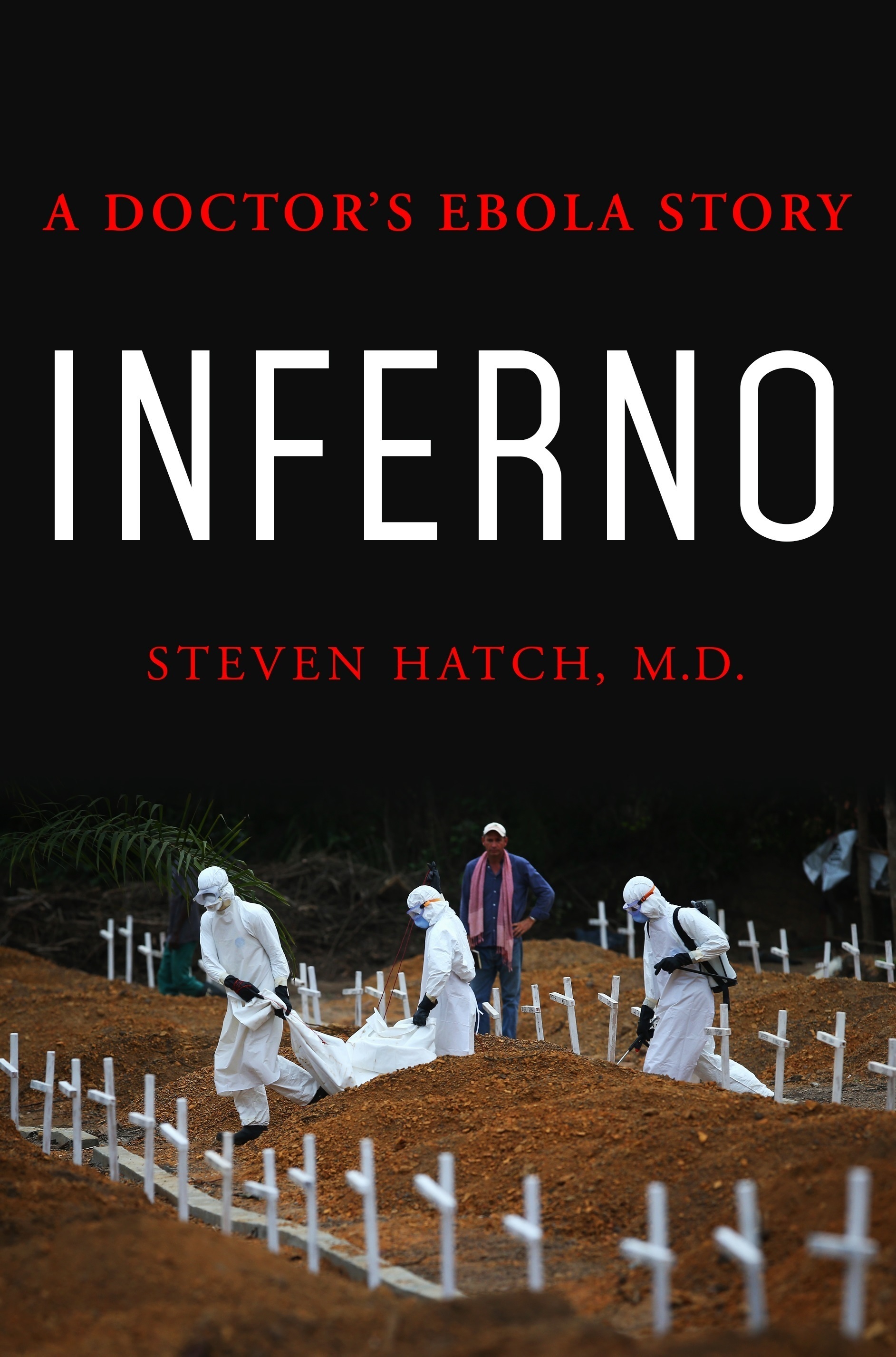“Inferno” (St. Martin’s Press), by Steven Hatch
In 2014, Dr. Steven Hatch, assistant professor of medicine at the University of Massachusetts Medical School, flew into a Liberian airport in the midst of the largest Ebola outbreak in history, donned multiple layers of protective gear and stepped into an Ebola Treatment Unit (ETU). There, he served as a physician (and at times a nurse’s aide, a surrogate parent and even a masseur) to the droves of patients arriving in makeshift ambulances. “Inferno” is Hatch’s exploration of Ebola’s origins and spread throughout Africa and beyond, coupled with his personal experience caring for those infected.

The story opens in December 2013. A toddler plays beneath a tree in the African village of Meliandou, oblivious of the Angolan free-tailed bats that are thought to have passed on the virus that is residing above him, effectively making the child patient zero. From here Hatch takes readers back, explaining the science of Ebola along with the historical factors playing into Liberia’s political climate, which paved the way for an epidemic.
Much of the book hones in on the day-to-day workings of the ETU, detailing the complexities of treating a deadly virus with such limited resources. From the inability to use a stethoscope due to the limitations of the protective gear to keeping patients warm after hospital blankets were stolen, every aspect of fighting the spread of the disease proved toilsome.
Hatch packs a wealth of knowledge into the book, but also details the minutia of red tape associated with managing infectious diseases. With straightforward prose, his work goes beyond what most of us watched on nightly news by examining the scientific, political, social and religious implications of the disease. Though the 2014 epidemic is behind us, “Inferno” serves as a poignant reminder of the widespread complications that accompany the onset, management and aftermath of plagues.
(AP)




